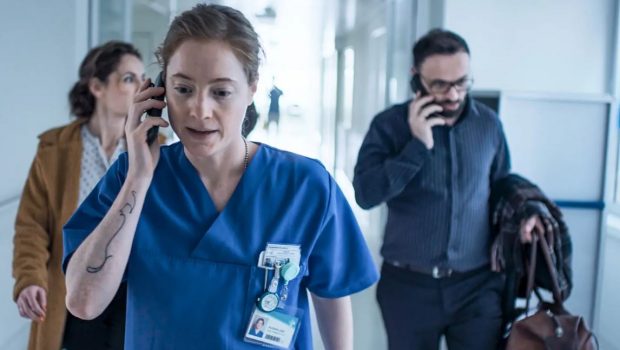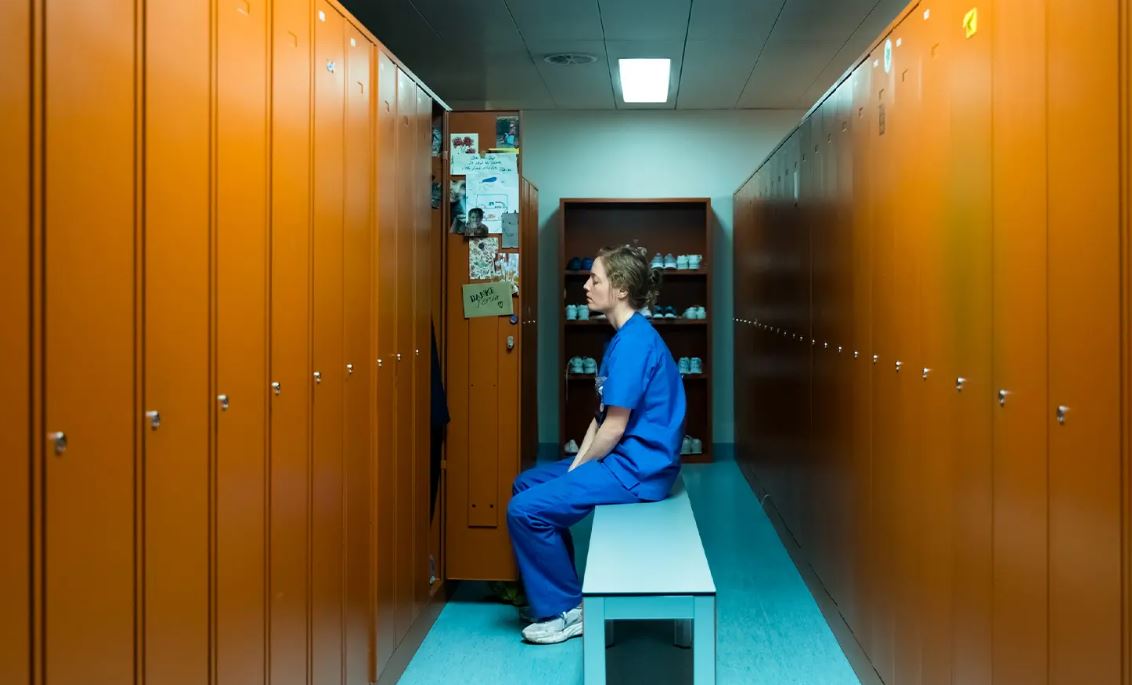Late Shift – Film Review
Reviewed by Harris Dang on the 12th June 2025
Madman Entertainment presents a film by Petra Volpe
Written by Petra Volpe
Produced by Lukas Hobi, Reto Schaerli
Starring Leonie Benesch, Sonja Riesen, Selma Aldin, and Alireza Bayram
Cinematography Judith Kaufmann
Edited by Hansjörg Weißbrich
Music by Emilie Levienaise-Farrouch
Rating: TBA
Running Time: 92 minutes
Release Date: TBA
Late Shift is set in modern-day Switzerland and is led by the wonderful Leonie Benesch. She plays Floria, a young, dedicated, and extremely professional surgical nurse. Her headstrong dedication to her work has a positive effect on her co-workers and the patients she sees during her rounds. Yet her work is never appreciated by those in the hospital above her.
One day, someone in the staff calls in sick. While the hospital is understaffed, Floria, without hesitation, takes over the late shift. What appears to be a mundane late shift becomes anything but. With over 20 patients to see in her rounds, she handles the tasks and delegation while being cool, calm, and collected. As time goes on, she gradually buckles under pressure. The requests from her patients and staff become increasingly insistent and trivial. Will Floria maintain her composure to get through the night?
Late Shift is the latest film from acclaimed Swiss filmmaker Petra Volpe, who is best known for directing the well-received comedy-drama The Divine Order (2017). The film dealt with issues involving women’s rights to vote in Switzerland in the early 1970s. In Late Shift, Volpe continues to dive into social issues as the film deals with the severe understaffing of nurses across one evening.
Most of the film involves Floria meeting the complex needs of her patients. A notable example is Mrs. Bilgin (Magherita Schoch), a dementia patient who must be soothed by Floria singing a lullaby to her. Similarly, Mr. Song (Jeremia Chung) is a Korean patient whose medication might be incorrectly dosed. Mrs. Morina is a cancer patient and young mother who questions whether to continue her treatment. The most notable interaction though involves a wealthy patient (Jurg Pluss), who is so angry and overly demanding he may tip Floria over the edge.
The interactions, which range from sweet to terse to enraging, add to the drama and escalating stakes. Some interactions turn maudlin and drastically shift the film’s tone. Nonetheless, editor Hansjörg Weißbrich’s brisk pacing ensures the story avoids melodrama. The cinematography by Judith Kaufmann also vividly captures Floria’s mindset as her world crumbles. Kaufmann adeptly uses long takes and handheld camerawork to raise the tension. Few in the audience will be aware of the immersive techniques until a patient lashes out. Both Leonie Benesch’s performance and the film’s soft, assured hand make the story dramatically satisfying.
Summary: Both Leonie Benesch’s performance and the film’s soft, assured hand make the story dramatically satisfying.









